Safari Read online
Page 3
‘Yeah.’
‘Homesick?’
‘Very funny.’
‘Maybe you can find yourself a job back in Africa slotting poachers for a living.’
‘I wish. I’d do anything to get back there.’
‘Who’d want to live in such a fucked-up part of the world?’ Geezer asked.
‘What do you call what we’re doing here?’ Shane grabbed his rifle and slid in a magazine. He tapped the base with his palm to make sure it was well seated.
‘Touché. Come on, sunshine, we’ve got work to do.’
Michelle Parker cried as though it were her child who had died.
She sat in the cab of her old Landcruiser, the tears cleaning streaks on her dusty face, as the lion glared at her and delivered the killing bite to the dog. It was stupid, she knew, and she was angry at herself for being so emotional. But Rembrandt had been the first African wild dog she had collared, nearly two years ago, and she had watched her mature into a fine alpha female who had led and protected her pack with courage time and again, and had cared as lovingly as any human mother for her litters of puppies. Michelle had decided, from the outset, that as the dogs were also known locally in Zimbabwe as painted hunting dogs, the new pack should all be named after artists.
Lycaon pictus, the scientific name for the dogs, once roamed all over sub-Saharan Africa, although now viable populations existed only in South Africa, Botswana, Kenya, Tanzania, Zambia and Zimbabwe. All up there were probably only between two and three thousand of them left in the wild, making them the continent’s most endangered mammal.
Michelle wiped her eyes with her fists and, with a shaking hand, recorded the time and place of Rembrandt’s death. Nantwich Pan, Hwange NP. This was, in her view, the most beautiful setting in Africa, but today it was a place of sorrow. A couple of tourists – a rare enough sight in the troubled country these days – sat in armchairs on the veranda of one of the lodges that overlooked the pan from a ridge, watching through binoculars the drama unfold below them. Michelle could hear their cooing and excited chatter from her position in the tree line, on the edge of the vlei that surrounded the twin concrete water troughs. The tourists were ecstatic at having the exceedingly rare double experience of seeing Africa’s most endangered mammal, the wild dog, and witnessing a lion kill take place.
For Michelle, Rembrandt’s death marked not only the loss of a creature she cared about, but the end of a dream and thousands of hours of work.
That morning she had checked her emails via a satellite phone connected to her laptop and downloaded the message she had been fearing, yet expecting, for several weeks. The funding for her wild dog research program had officially been ‘redirected’ to another project. What or where, the message didn’t specify, but she expected it would be somewhere like South Africa, or Kenya or Tanzania. With little support from the host government, researching animals in Zimbabwe was difficult and expensive. Also, there was little public pay-off for the wildlife organisation that sponsored her, given the reluctance of the local authorities to let foreign media crews into the country.
She had four weeks to wrap things up and return to Canada. At least they were paying for her air ticket. The trouble was, she did not want to leave Africa. She had seen the warning signs and had already been sounding out potential donors in case her principal funding source dried up. She had contacted local private lodges and safari operators, but all of them seemed on the brink of bankruptcy given the parlous state of the tourism industry. Thanks to the government’s evictions of white farmers and black squatters alike, foreign tourists and hunters had all but stopped coming to Zimbabwe.
The sight of Rembrandt and her pack of eighteen other dogs at Nantwich just after dawn had momentarily lifted her spirits. At least she could leave the country knowing she had achieved something, having watched and recorded the creation of a new, viable group of dogs from the time Rembrandt had found another lone dog, a male Michelle had named Picasso. Rembrandt, long since accustomed to the sight of the old white Landcruiser, had trotted towards Michelle, sniffed the air and then returned to her latest litter of tiny pups. Michelle had smiled to herself, noted the behaviour and started to pour a cup of coffee from her flask, when she noticed the lionesses.
She had wanted to honk her horn or shout out to the dogs, but the tourists were up early, on their feet, watching in excited awe at the arrival of two types of predators at the pan. She asked herself whether she would have tried to intervene to save the dogs if she had been the only human on the scene. She shook her head. No.
The lionesses had seen the dogs first and all four had lowered themselves as one in the long yellow grass, their actions synchronised – a lethal killing team. Rembrandt had been shepherding her pups towards a flock of guineafowl and the young ones had yelped with delight as they chased the fleeing, clucking birds. Michelle’s gaze flitted between the dogs and the cats, her binoculars swinging back and forth as the fear pumped through her body like a spreading sickness.
‘No!’ she whispered as the lionesses charged.
Rembrandt was the first to see them. She yelped her warning cry, scattering the sub-adults and the pups in a dozen different directions. Picasso raced away. ‘Run, baby,’ Michelle called futilely from the sidelines. The tourists up at the lodge had their cameras whirring away. They whooped in delight like Roman spectators at the gladiatorial games. Michelle bit her lip.
Three of the lionesses peeled off to follow individual dogs. Rembrandt ran from the drinking trough, straight across their paths. Michelle screamed, startling the tourists. The cats were confused by the dog’s tack, and slowed to a halt as Rembrandt turned on them and started running towards the biggest feline.
Michelle had seen buffalo, in numbers, turn on a pride of lion and chase them away, and had even heard of a troop of baboon seeing off an attack by three lions. But one dog on her own stood no chance. Rembrandt stopped, bringing up a tiny puff of dust in the process. She bared her teeth and snarled. In the distance, Picasso, the juveniles and the pups disappeared into a line of bushy immature leadwood trees. Michelle had closed her eyes and heard a single yelp of pain as Rembrandt died.
The lionesses stood over her body now, looking in four different directions for the other dogs, who had long since gone. They didn’t feast on Rembrandt – that was not their way. Michelle knew lions and hyenas killed wild dog and their pups simply to take them out of the hunting game, not for food. Of all of Africa’s large carnivores, the painted dogs had the highest ratio of successful kills to attempts. They took game ranging in size from small buck up to zebra and wildebeest. Because they were so lethal they were a threat to other predators.
Michelle started the Cruiser, put it into gear and bumped and jolted her way out onto the pan. The lionesses stood their ground for a few seconds and then turned and trotted away. She could hear the tourists’ curses from two hundred metres off. She didn’t care about them. She wasn’t depriving the lionesses of a meal, and she had to get the collar and valuable transmitter off Rembrandt’s torn and broken body before some hyena crunched it into tiny pieces.
She stopped the truck and watched the tawny killers melt into the long grass. She eased herself out of the cab, long legs almost touching the ground from the driver’s seat. She’d been sitting in the vehicle for nearly three hours and was grateful of the opportunity to stretch at last. She told herself to be strong, checked left and right and behind her in case there was anything lurking, and waded through grass as golden as the wheat on the prairie she had worked and studied so long and hard to escape. Now she’d probably end up back there, for a time at least. Her heart sank. No money, no research, no job back in Canada. The sum total of her last two years’ work lay crumpled and mangled at her feet. She parted a clump of grass and felt the warm, sticky blood. That made her lose it again. Tears streamed down her cheeks as she used her pliers to unfasten the radio collar she had fitted. She’d known every brown and white and black blotch on Rembrandt’s stunning patch
work coat. Now it was a mess of blood and gore. She reached out and ran her hand over the still-warm snout, closed the dog’s eyes and smoothed back the distinctive, beautiful, oversized ears. Michelle took the collar back to the truck and returned with her digital camera. She sniffed and wiped her eyes with the back of her shirt sleeve, then took a series of photos of the body. She was a scientist, after all.
Charles Ndlovu coughed into his hand and bent forward at the waist to ease the weight on his legs. The canvas straps of the heavy pack dug into his shoulders and he ached all over, as though he had a fever. He used his self-loading rifle, the SLR, like a walking stick to steady himself.
‘Come, old man, or would you rather us call the vehicle?’ the young ranger said as he slapped Charles on the back.
If he hadn’t been so incredibly tired he would have said something back to the man, or, in his youth, challenged him to a fight. Instead, he straightened himself and started to walk again. Had he been offered a lift home in a Land Rover he might very well have taken it, but that was part of the young man’s joke. There was no diesel in the national park – virtually none in the country – so even if someone were taken seriously ill on the patrol, or wounded in a gunfight with a poacher, there was no prospect of a quick evacuation.
The callsign had been out for three days now. They had hitched a ride part of the way on a trailer towed by a tractor that was ferrying a broken diesel engine, one of those used for pumping water at the pans where the animals drank, from Sinamatella to Main Camp for repair. The irony that the tractor driver was using the last of the camp’s precious reserves of fuel to try to fix a piece of equipment that might not run again for weeks or months because the tanks were now dry, was not lost on Charles. At the Mandavu Dam picnic site the four men who made up the anti-poaching patrol, known in radio parlance as a callsign, had jumped off and spent their first night camped around the empty shelters that once brimmed with families on weekend outings and foreign tourists on safari.
An intrepid family of South Africans in a four-wheel drive, the only visitors to this part of the national park in the past fortnight, had reported seeing a campfire on the Sinamatella River three nights earlier. There were no tour operators in the park at the time, and no other callsigns in the area, so it was likely the fire had been lit by a careless or arrogant band of poachers.
Charles Ndlovu and his comrades had circled the dam in search of spoor, scattering a herd of grazing impala and arousing the curiosity of a lone bull elephant in the process. Charles had held his rifle above his head and tapped on the tin box of the magazine. Elephant were not stupid. The animal had seen the gun and knew it was wise to depart. After an hour of scanning the dirt, the dry grass and the tips of thornbushes, Charles had picked up their quarry’s tracks. Four men, two wearing rafter sandals; the other pair, new running shoes. This was normally the footwear of whites and tourists, though the poachers would be men of his colour. He guessed the men were from Victoria Falls or, more likely, its twin town on the Zambian side of the Zambezi River, Livingstone. The men with the shoes had money, which told Charles two things. These were commercial poachers – not starving men looking for food – and they were not Zimbabwean. At least one was armed with an AK 47 and he, as Ndlovu had just done, had rested the butt plate of the rifle on the ground when he’d stopped to rest, leaving a telltale imprint in the dust.
Now, on day three of the patrol, the callsign had picked up a new set of tracks, hence the urgency of the boy who chivvied Charles along.
‘Take a look, old man,’ the whelp, whose name was Lovemore, said.
Charles dropped slowly to one knee and wiped the sweat from his brow. The grey dust was as fine as talcum powder and smelled strongly of the Ndlovu, the elephant that had stripped the land bare and pulverised it underfoot. The animal was his family’s totem, but Charles despaired at the damage they were doing to the park. ‘Bejane,’ he said.
‘Chipmberi,’ Lovemore countered.
The third member of the callsign, Noah, broke the tension and the deadlock. ‘Diceros bicornis!’
Charles smiled. ‘See what a good education does for you, Lovemore?’ Whether in his native Ndebele tongue, Lovemore’s Shona or Noah’s Latin, it was still the same thing. A black rhinoceros. But Charles knew more than the other members of the team – he knew this one’s name. ‘They call her Chewore.’
He had known Chewore since she was quite young. His good friend Patrick Mpofu had cared for and guarded the female rhino from the time she was a baby, and not much bigger than a pig. Chewore had been orphaned by poachers about eight years earlier and, along with other rhinos who shared her fate, been relocated to Matusadona National Park in the north of Zimbabwe, on the shores of Lake Kariba. There she had been hand-reared and progressively reintroduced to life in the bush. Two years ago Chewore had been darted, captured and driven to Hwange National Park, on the western side of the country.
Charles was still amazed that Patrick, who had followed his horned charge on a posting to Hwange, was dead – shot committing the crime he had fought against all his adult life. He was certain, though, that Patrick would never have been involved in rhino poaching, unlike the men they were tracking now.
‘You know this animal by name?’ asked Lovemore, who was new to the park, having spent most of his career so far working in an office in Harare. He needed field experience to secure further promotion. However, being a member of the President’s ruling Shona tribe, Charles doubted Lovemore needed to spend too much time in the bush to get his next pay rise.
‘You can tell her by the nick on the sole of her right front foot. She likes to roam, this one. We’ve had to bring her back from Botswana twice before. She is smart, this animal.’
‘Why smart?’ Lovemore asked.
‘She knows there is no future in Zimbabwe,’ Charles said. Noah, and the fourth man, Christopher, smirked behind Lovemore’s back.
‘Get on with your job.’
Charles straightened again. ‘The rhino spoor is only a day older than that of the Zambians.’ They had agreed the poachers were from across the border, as it was well known all Zambians were criminals. Their enemy, at least, united the members of the callsign. ‘That means they will close on her in the next day or so.’
Lovemore nodded, as though he had already reached the same conclusion. He took a map from his pocket, unfolded it and studied it intently.
Charles leaned over his shoulder. He knew exactly where they were and did not want to antagonise the younger man any more than was necessary. ‘Here,’ he said, smudging the paper with his dirty fingerprint. ‘Just north of Manzi Chisa.’ While the rhino were theoretically concentrated in the Sinamatella Intensive Protection Zone, there was no fence around the IPZ and it was not unusual for the bejane to wander further west in search of water at this time of the year. The worry was that Chewore would run true to form and continue westwards, out of the national park and into Botswana.
‘I know where we are,’ Lovemore said testily. ‘We need to catch these men before they leave the park, so we can shoot them.’
Charles imagined it would be a big feather in the young man’s cap if he could claim responsibility for the deaths of the Zambians. All he wanted was to see the men arrested, for then he could go home to his wife for a rest.
Good lord, I am tired, he said to himself.
3
Michelle Parker brushed her long auburn hair and tried to imagine life after Africa. It was a grim prospect.
A ray of afternoon sun lanced through a chink in the curtains with the heat and intensity of a laser beam, warming the interior of the sparsely furnished national parks lodge at Robins Camp. Michelle had bathed and wore only a brightly patterned sarong, knotted above her breasts. The hot, dry breeze whistling through the gauzed windows on the shadowed side of the building cooled her still-wet body, producing a fleeting chill to be savoured. She’d grown accustomed to Africa’s year-round heat and did not relish returning to Canada in the fall.
She pulled back her hair into a simple ponytail and scrounged in her toiletry bag for what little makeup she still had. She rarely wore the stuff, but tonight she was going to dinner. With a man.
Michelle had met Fletcher Reynolds earlier on in her time in the national park. There were few whites living in the area, their numbers having dwindled in recent years when the so-called war veterans invaded the white-owned farms, game ranches and hunting concessions, so it was inevitable that she would make contact with him. His hunting lodge was only a few kilometres outside the park’s northern boundary and she was often in this area following her beloved wild dogs.
She hated hunting but, to her surprise, Fletcher had seemed genuinely concerned about wildlife conservation. However, she realised his overriding interest was ensuring a lifetime’s supply of animals for his rich Americans and Europeans to kill at a later date.
At past fifty he was much older than she – maybe by as much as twenty years, though she had never asked – but she had to admit he was also a ruggedly handsome man. Age hadn’t mattered to her in previous relationships – she had been with men older and younger than she. He was tall, too, which was of more than passing interest to a girl who stood perilously close to five-eleven. Tanned, strong-jawed with blue eyes the same colour as hers; and he seemed to be smart and witty. If he’d been a dog, she would have classed him as an alpha male – just as she would have said, to anyone who would listen, that human relationships should mirror those of the African wild dog. It was the alpha female who ruled the pack.
Fletcher had never made a pass at her, nor even asked her to come to dinner alone with him – until two days ago, when she’d stopped her Landcruiser beside his old Land Rover. In the past she’d been invited to Isilwane Lodge for parties, such as at New Year’s, or when he’d had big groups of hunters in residence. He’d told her, candidly, that many hunters were looking for wildlife conservation projects they could contribute towards. She’d swallowed her pride and bitten her tongue at more than one such gathering and been rewarded with a few cash donations, which she was able to use to buy fuel, and batteries for her radio tracking equipment.

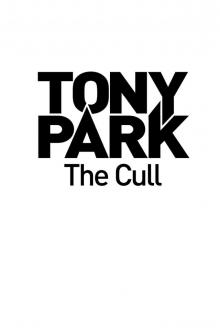 The Cull
The Cull Blood Trail
Blood Trail Red Earth
Red Earth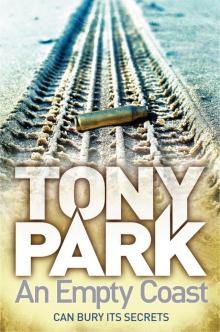 An Empty Coast
An Empty Coast Dark Heart
Dark Heart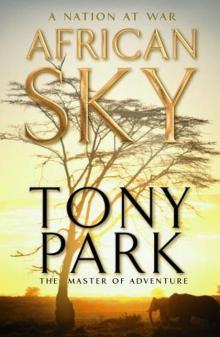 African Sky
African Sky The Delta
The Delta Captive
Captive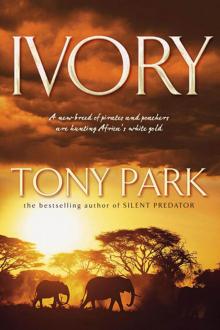 Ivory
Ivory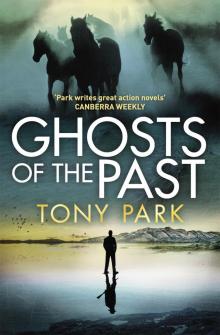 Ghosts of the Past
Ghosts of the Past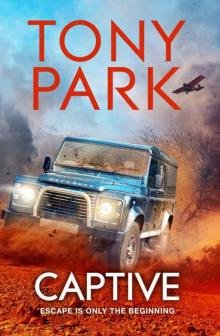 Captive_A High-octane And Gripping African Thriller
Captive_A High-octane And Gripping African Thriller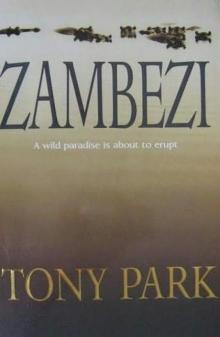 Zambezi
Zambezi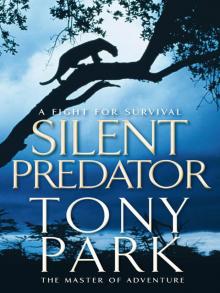 Silent Predator
Silent Predator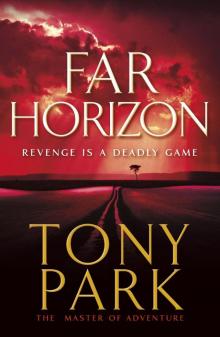 Far Horizon
Far Horizon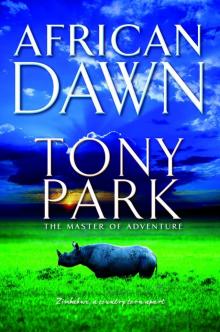 African Dawn
African Dawn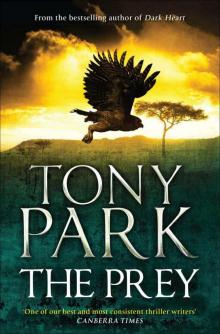 The Prey
The Prey Safari
Safari